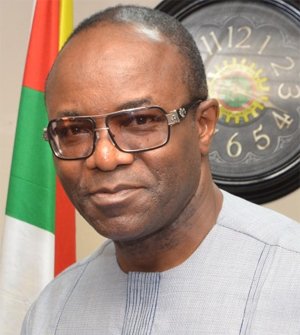Coming at a time of sustained decline in global oil prices, the plan by the Nigerian National Petroleum Corporation (NNPC) to review the fiscal terms of existing Production Sharing Contracts may be opposed by International Oil Companies involved in such deals, industry experts have said.
Some of the experts said the action could further discourage investments by the IOCs and cause them to move their resources elsewhere.
The nation’s oil and gas production structure is majorly split between joint ventures with the NNPC onshore and in shallow waters and the PSCs in deepwater offshore.
Under the PSCs, the NNPC is the oil licence holder, but engages oil firms as contractors that bear all risks and recover costs from the production after royalty payments, which ranged from 12 per cent for fields in water depth of up to 500 metres to zero percent for fields in water depth of above 1,000 metres.
The Group Managing Director, NNPC, Dr. Ibe Kachikwu, had last week said the corporation would be renegotiating the contracts with some IOCs in “the weeks and months ahead” to extract as much benefit as possible for Nigeria.
He said some of the contracts were negotiated over 20 years ago and had since been overtaken by new realities in the industry.
A United States-based oil and gas expert and Co-Director, Institute for International and Immigration Law, Thurgood Marshall School of Law, Texas Southern University, Prof. Emeka Duruigbo said that it was within Nigeria’s sovereign rights to initiate the process of renegotiation of the contracts.
“From a legal angle, it calls into question the country’s respect for or adherence to the principle of sanctity of contracts,” he however stated.
Duruigbo is of the view that agreements freely entered into by mature parties deserve deference and compliance, even when aspects of it are no longer palatable.
He said, “The key is to learn lessons from past mistakes and not repeat them in future transactions. Thus, calling for renegotiation may not be favourably received by the IOCs, especially if they do not see sufficient rationale to warrant such review.
“Secondly, from an economic standpoint, the IOCs are accustomed to the exact opposite treatment to what the NNPC GMD is proposing.”
According to him, in times of low oil prices as is being witnessed today, governments are more likely to offer more favourable fiscal terms to the IOCs to stimulate interest in further investments.
“Since the Nigerian action is in the opposite direction, there is a good chance that the move will deter further investments by the IOCs and cause them to move their resources elsewhere,” he said.
The President, Nigerian Association for Energy Economics, Prof. Wumi Iledare, said the idea of re-negotiation was floated by the Inter-Agency Team redraft of the Petroleum Industry Bill, 2008, but was vehemently opposed by the IOCs then.
He said, “In all honesty, the sanctity of contracts cannot be violated without repercussion. It is a noble wish if he (Kachikwu) thinks the contracts have a provision to negotiate. Perhaps, if the contracts have expired and are due for renewal, there is room to renegotiate the contracts.
“I cannot just fathom why any IOC will accept instruments and terms that may negatively impact asset profitability, especially when the IOCs are fully responsible for exploration development cost under a typical PSC regime.”
He said the best the government can do is to wait for the contracts to expire and redefine the terms for renewal.
Copyright Ships & Ports Ltd. Permission to use quotations from this article is granted subject to appropriate credit given to www.shipsandports.com.ng as the source.


